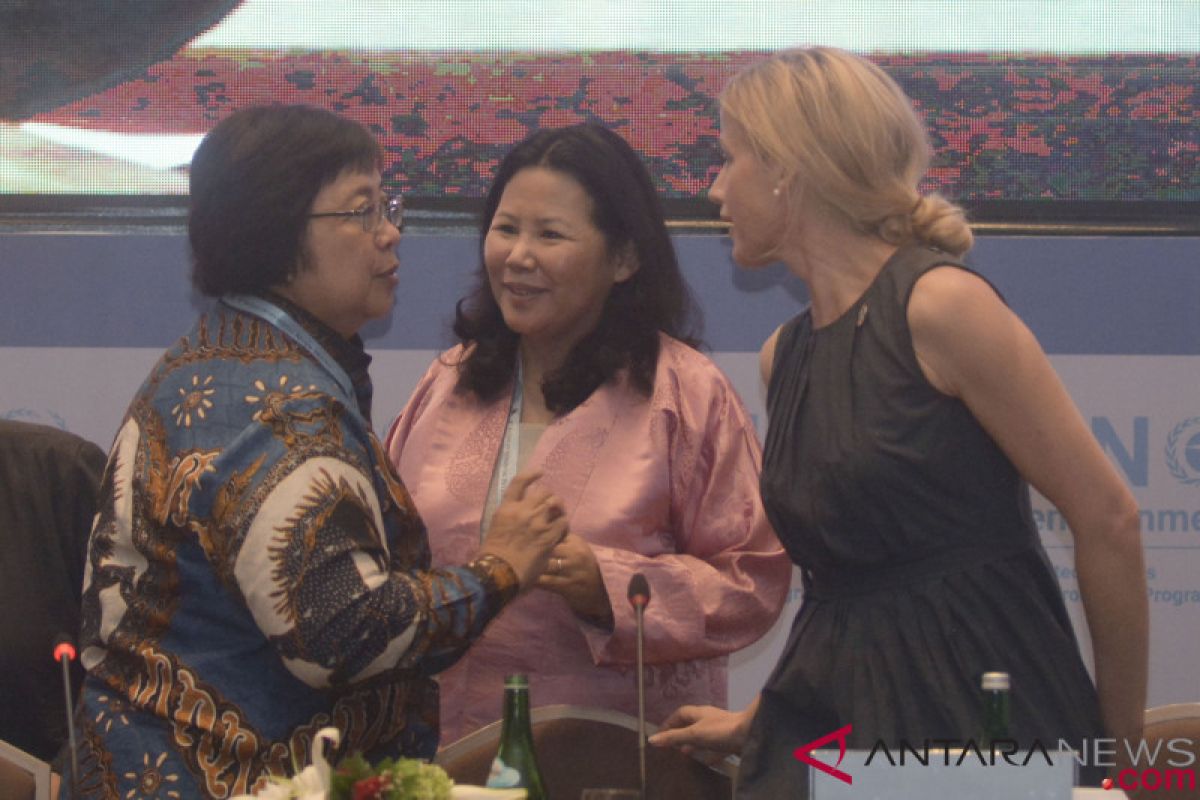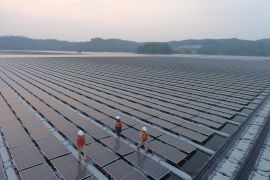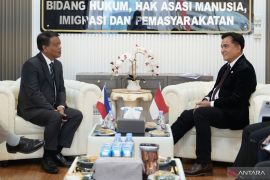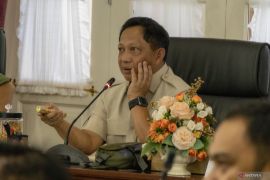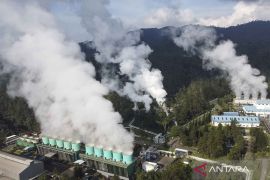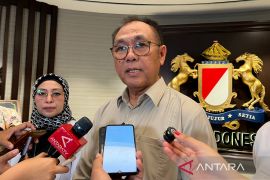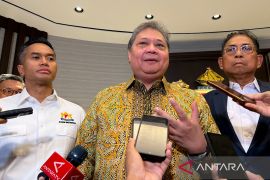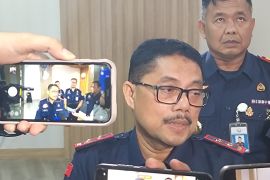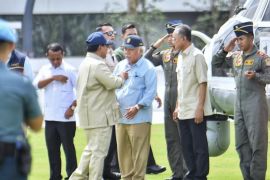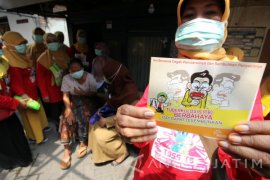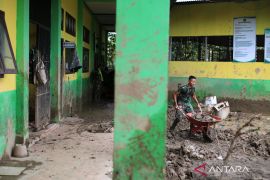Makarim Wibisino, representing the Drafting Committee for Bali Declaration, read out the declaration at the conclusion of the two-day meeting on Thursday night.
Based on the discussions and available documents, the forum agreed to work in accordance with their function, model, and implication, including the legal basis, and budget, according to a press statement made available on Friday night.
"GPA (Global Programme of Action) is currently coordinating activities to be implemented during the intersessional period until the UNEX-4," Wibisino stated.
The results of discussions held during the IGR-4 will be brought to the UN Environment Assembly (UNEA-4) to be held in Nairobi, Kenya, next year.
The IGR-4 is a forum of the United Nations Environment Programme (UNEP) held from Oct 31 to Nov 1, 2018. The IGR-4 is themed "Pollution in Ocean and Land Connection."
The agreements reached at the IGR-4 were later contained in the "Bali Declaration on the Protection of the Marine Environment From Land-Based Activities."
At the meeting, some 400 delegates from 89 UNEP member states discussed protection of the marine environment from land-based activities.
Indonesian Minister of Environment and Forestry Dr Siti Nurbaya Bakar was appointed to lead the IGR-4 meeting that lasted dynamically for two days.
Almost all delegates highlighted messages and interests of their countries to deal with marine pollution, particularly to protect against land-based activities.
The meeting lasted dynamically, marked with trade-off of interests among UNEP member states, including the Africa Group, Asian and Pacific, Eastern Europe Group, Latin America and Caribbean Group and Western Europe.
"Alhamdulliah (Thank God), after tense moments, all countries have agreed on the Bali Declaration. The dynamic meeting showed that this issue has been the center of global attention," she noted.
In the Bali Declaration, the delegates commit themselves to accelerating the implementation of the recommendations of IGR as follows:
1. Enhancing the mainstreaming of the protection of coastal and marine ecosystems, especially from environmental threats caused by increased nutrients, wastewater, marine litter, and microplastics.
2. Increasing capacity, understanding, and knowledge sharing through collaboration and partnership with the government, private sector, civil society, and experts at the regional and global levels for the protection of coastal and marine ecosystems from land-based activities and pollution sources.
In addition, the delegates agreed on the continuation of the Global Programme of Action covering:
1. Continuing the efforts to handle the flow of three pollutants -- chemical nutrients, wastewater, and marine litter -- to support the agenda 2030 as the framework of sustainable development.
2. Enhancing global partnership on marine litter, global partnership on nutrient management, and global wastewater initiative and linkage between the cooperation.
3. Increasing coordination, agreement, and support for cooperation with other countries to overcome land-based pollution.
4. Continuing efforts to prevent marine litter and microplastics, chemical nutrients, and wastewater from land in an integrated manner, including linking land and sea and fresh and sea water in an action plan.
(T.S012/B/KR-BSR/S012) 03-11-2018 13:28:29
Reporter: Suharto
Editor: Andi Abdussalam
Copyright © ANTARA 2018
